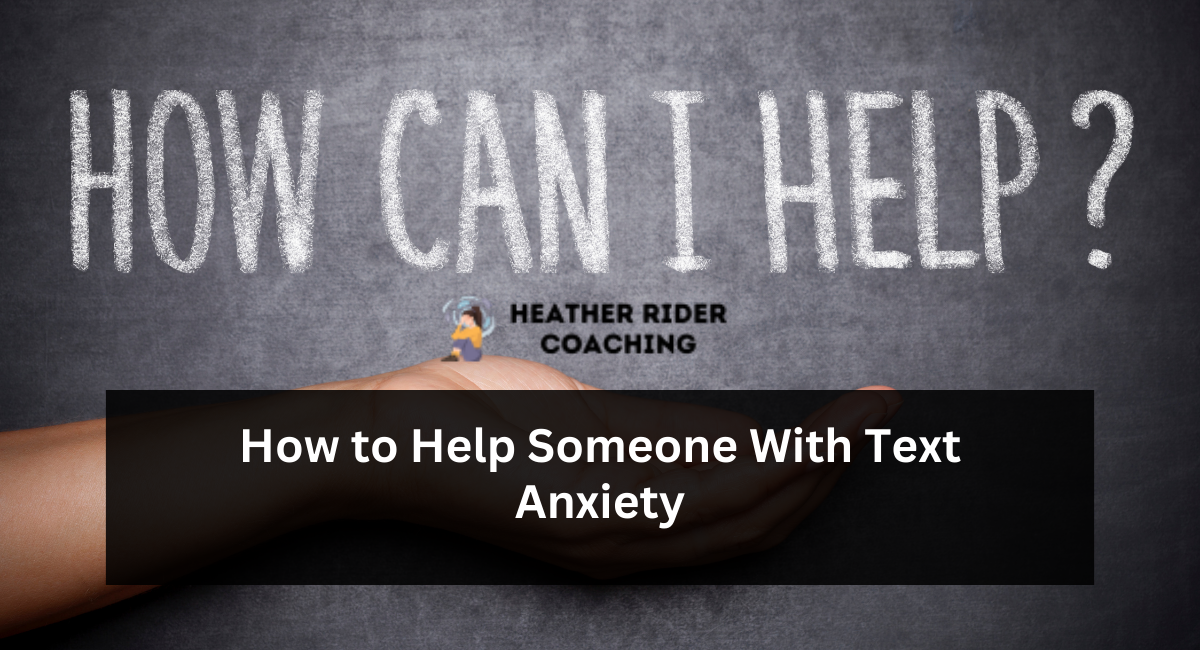Text anxiety sufferers often encounter much confusion and discomfort when trying to communicate via text, constantly feeling their communication skills are insufficient or that their words are being lost in translation.
However, there are ways you can assist those experiencing text anxiety. Here are a few strategies:
Encourage them to talk it out
If a friend confides in you about having anxiety, it is essential to remain sympathetic and supportive – but be mindful that you’re not acting as their therapist; your primary role should be helping them through this difficult period.
Remind them they’re much stronger than they think, and encourage them to seek professional assistance.
Offer to accompany them when visiting their doctor or therapist session – people suffering from anxiety may find it hard to make that initial step towards seeking assistance on their own.
Sometimes, all a person needs is someone there for them who won’t judge or tell them to “just think positive thoughts.” Instead, say something like, “I’m here if ever need to talk about this stuff,” or, “I just want to be here with you.” Being present for them helps calm their nervous systems.
Give them a break
When someone is experiencing an anxiety attack, it can be hard to know what steps are the most helpful. Sometimes, offering them a break will allow them to relax and breathe easier – this could include text messaging.
Example: Text your friend a funny meme that will bring a laugh or show them nature sounds in video form, encouraging deep breathing or mindfulness practice, encouraging deep breathing or mindfulness practice, or providing them access to a mental health hotline in case they need immediate assistance.
As important as text conversations can be, they won’t ease a friend’s anxiety. If you truly want to assist them in managing it, take the time to meet in person and accompany them on a therapy appointment so you can give them all the support they require in this difficult period of their lives.
Encourage them to text you back
Though frustrating, remember that sometimes our friends can’t text back immediately. If this concerns you, consider sending a simple message telling them you’re thinking of them and giving them time.
When giving advice, be careful not to say, “It’s all in your mind” or “Just stay positive.” These statements could make them feel that their anxiety is being dismissed or they are burdensome.
Tell them a funny tale from your past or share one of your best memories to skew away from negative thoughts, suggests Romanoff. Mentioning how much anxiety has affected you can also make people feel less isolated; reminding them to practice deep breathing techniques can also show support if they’re feeling anxious.
Remind them that you’re there for them
Be the one to reach out and offer them extra support – whether they’re experiencing an anxiety attack or need extra encouragement and care – when they need you most. Tell them they have someone there for them; you will always care and aren’t going anywhere soon.
Provide support through text by saying, “I understand what you’re going through, and I can only begin to comprehend the challenges you face daily. Acknowledging someone with anxiety is essential in helping them through difficult times.”
Ask them if you can do anything to assist and offer to do it – whether that means being there physically, helping break down problems, or researching mental health resources. Showing you are there truly for them shows them you care enough about their well-being to go the extra mile in overcoming difficult parts of life.
Conclusion:
Assisting someone with test anxiety involves offering emotional support, helping with preparation strategies, and promoting a positive mindset. Encourage effective study habits, share relaxation techniques, and provide reassurance. Remind them of their capabilities and the value of self-compassion. By fostering a supportive environment, you can contribute to alleviating test anxiety and building confidence.
